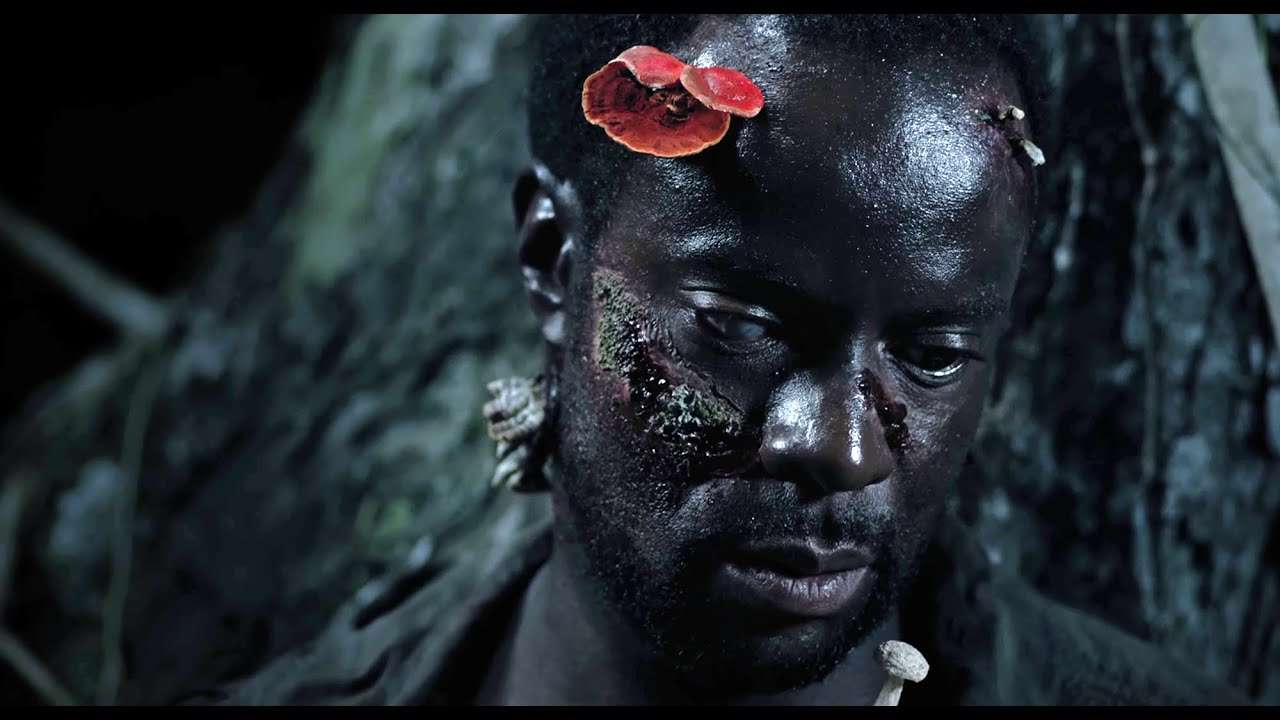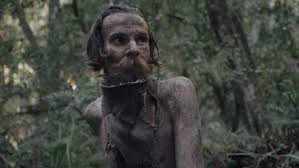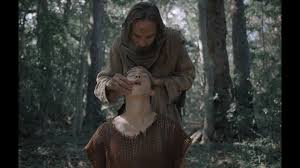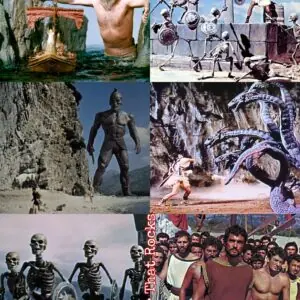Written by: Tertius Kapp
Starring: Monique Rockman, Carel Nel, Alex van Dyk, Anthony Oseyemi
Genre: Eco-Horror, Survival, Psychological Thriller
Runtime: 96 minutes
Introduction
Gaia (2021), directed by Jaco Bouwer and written by Tertius Kapp, is a South African eco-horror film that blends body horror, survivalist tension, and mythological dread into a visually arresting and thematically dense experience. Set against the lush yet sinister backdrop of a primordial forest, the film follows two forest rangers who encounter a father and son living off the grid—only to discover that the wilderness harbors something far more ancient and malevolent than they could have imagined.
With its striking cinematography, unsettling sound design, and thought-provoking themes about humanity’s relationship with nature, Gaia stands out as a unique entry in the eco-horror subgenre. While it may not be for everyone due to its slow-burn pacing and abstract storytelling, it rewards viewers who appreciate atmospheric, philosophical horror.
Plot Summary (Spoiler-Free)
Gabby (Monique Rockman), a forest ranger, and her colleague Winston (Anthony Oseyemi) are on a routine patrol in a remote South African forest when their drone surveillance picks up signs of human activity. Venturing deeper into the woods to investigate, Gabby becomes separated from Winston and stumbles upon Barend (Carel Nel) and his son Stefan (Alex van Dyk), who live in isolation, worshipping the forest and its unseen forces.

As Gabby stays with them, she begins to witness bizarre fungal growths, disturbing mutations, and eerie rituals that suggest the forest is not just alive—it’s sentient, and it’s fighting back against human intrusion. The deeper Gabby delves into their world, the more she realizes that escape may be impossible, as nature itself seems to be reclaiming its dominion.
Themes & Symbolism
1. Nature’s Retribution
At its core, Gaia is a meditation on environmental collapse and nature’s vengeance. The film draws from the Gaia hypothesis, which posits that Earth functions as a self-regulating organism. Here, the forest is not just a setting but an active, malevolent force—a deity punishing those who exploit it. The fungal infections and grotesque mutations symbolize nature’s way of assimilating or eradicating humanity.

2. Religion & Fanaticism
Barend and Stefan worship the forest as a god, performing rituals to appease it. Their fanaticism mirrors extremist environmentalism taken to a terrifying extreme, where devotion to nature becomes self-destructive. The film asks: Is their way of life a return to harmony, or is it a descent into madness?
3. Body Horror & Transformation
The film’s most disturbing elements come from its body horror, reminiscent of Annihilation (2018) and The Ruins (2008). The fungal growths represent an irreversible metamorphosis—humans becoming part of the ecosystem in the most grotesque way possible. These scenes are both mesmerizing and deeply unsettling.
4. Isolation & Paranoia

Like The Witch (2015), Gaia thrives on isolation-induced paranoia. Gabby’s growing distrust of Barend and Stefan, coupled with the forest’s oppressive presence, creates a suffocating atmosphere where reality itself seems to unravel.
Visuals & Cinematography
The film’s greatest strength lies in its breathtaking yet eerie visuals. The cinematography by Jorrie van der Walt captures the forest in all its beauty and terror—lush greens, decaying browns, and eerie bioluminescent fungi create a dreamlike yet nightmarish aesthetic. The use of natural lighting and close-ups of organic decay immerse the viewer in a world that feels both ancient and alien.
The creature design, particularly in the third act, is both mesmerizing and horrifying. The practical effects—especially the fungal growths—are disturbingly realistic, enhancing the film’s body horror elements.
Sound Design & Score
The soundscape of Gaia is as crucial as its visuals. The absence of a traditional score in many scenes amplifies the tension, with only the rustling leaves, distant animal calls, and unsettling whispers of the forest filling the silence. When music does appear—courtesy of composer Pierre-Henri Wicomb—it’s a haunting blend of choral chants and dissonant strings that heightens the film’s mythological undertones.
Performances
-
Monique Rockman (Gabby) delivers a compelling performance as the rational outsider forced to confront the inexplicable. Her transformation from skeptic to desperate survivor is gripping.
-
Carel Nel (Barend) is the film’s standout, embodying a deranged yet strangely charismatic prophet of the forest. His monologues about nature’s wrath are chilling.
-
Alex van Dyk (Stefan) brings an eerie innocence to his role, making his character’s fate all the more tragic.
Pacing & Narrative Structure
Gaia is deliberately slow, prioritizing atmosphere over action. While this may frustrate some viewers expecting a more conventional horror experience, the gradual buildup enhances the sense of dread. The third act, where the film fully embraces its body horror and cosmic horror elements, is where Gaia truly shines—though some may find the ending ambiguous or unsatisfying.
Comparisons to Other Films
Fans of the following films will likely appreciate Gaia:
-
Annihilation (2018) – For its surreal, nature-based horror.
-
The Witch (2015) – For its slow-burn tension and religious paranoia.
-
The Ruins (2008) – For its body horror and sentient plant life.
-
The Ritual (2017) – For its forest-dwelling deity and psychological terror.
Final Verdict
Gaia is a visually stunning, thematically rich eco-horror film that lingers long after the credits roll. While its slow pacing and abstract storytelling may not appeal to all horror fans, those who appreciate atmospheric, thought-provoking cinema will find it a rewarding experience. It’s a film that asks uncomfortable questions about humanity’s place in nature—and what happens when nature decides to fight back.
Rating: 8/10
✅ Strengths: Stunning cinematography, strong performances, unique eco-horror premise, effective body horror.
❌ Weaknesses: Slow pacing may test patience, ambiguous ending may frustrate some.
Who Should Watch It?
-
Fans of atmospheric, slow-burn horror.
-
Viewers who enjoy body horror and eco-horror.
-
Those who appreciate visually striking, thematically dense films.
Who Might Dislike It?
-
Viewers who prefer fast-paced, jump-scare-heavy horror.
-
Those who dislike ambiguous or open-ended conclusions.
Conclusion
Gaia is a haunting, beautifully crafted film that blends ecological dread with mythological horror. It’s not just a story about survival—it’s a visceral reminder that nature is not ours to conquer. If you’re in the mood for a cerebral, visually immersive horror experience, Gaia is well worth your time. Just don’t be surprised if you find yourself glancing warily at the trees on your next hike.





